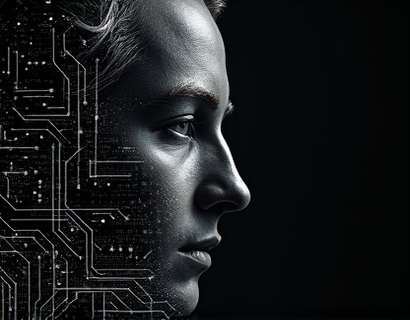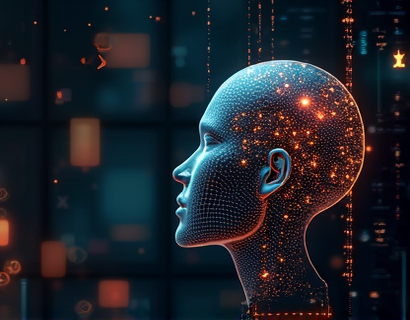AI-Powered Chat Interface: Transforming Access to Architecture Insights
The integration of artificial intelligence in the field of architecture has opened new avenues for accessing expert insights and specialized information. An AI-powered chat interface is revolutionizing the way users engage with architectural knowledge, providing a safe and educational environment for individuals of all ages. This innovative approach ensures that users receive accurate and reliable content, fostering both learning and professional growth in the architecture sector.
Enhancing Educational Engagement
The traditional methods of learning architecture often involve extensive reading, complex diagrams, and hands-on experience. However, these methods can be daunting for beginners and may not cater to diverse learning styles. An AI-powered chat interface addresses these challenges by offering interactive and personalized learning experiences. Users can ask questions, receive instant responses, and explore various aspects of architecture in a conversational manner. This real-time interaction makes the learning process more engaging and effective.
Specialized Information for Students and Educators
For students and educators in architecture, access to specialized information is crucial for academic and professional development. The AI chat interface serves as a valuable resource, providing in-depth insights into architecture services, industry trends, and best practices. The platform is designed to cater to different levels of expertise, from beginners to advanced professionals, ensuring that users receive content that is both challenging and relevant to their needs.
Content Verification and Reliability
One of the key advantages of using an AI-powered chat interface is the emphasis on content verification. The system is programmed to cross-check information from multiple reliable sources, ensuring that the data provided is accurate and up-to-date. This feature is particularly important in a field like architecture, where precision and reliability are paramount. Users can trust the information they receive, making it an invaluable tool for both educational and professional purposes.
Ensuring Safety and Accessibility
Safety and accessibility are at the forefront of the AI chat interface's design. The platform is specifically tailored to be suitable for children and students, with content that is age-appropriate and free from inappropriate material. This makes it an ideal resource for schools and educational institutions, where students can explore architectural concepts in a secure environment. Additionally, the interface is optimized for easy use, ensuring that users of all technical backgrounds can navigate and benefit from the platform without difficulty.
Child-Friendly Features
The AI chat interface includes several features to ensure a safe and enjoyable experience for young users. The language used is simple and clear, avoiding complex jargon that might confuse children. Interactive elements such as visual aids and gamification are incorporated to make learning more engaging. Moreover, the platform monitors user interactions to prevent any exposure to unsuitable content, providing a safe space for educational exploration.
Professional Growth and Networking
For professionals in the architecture field, the AI chat interface offers a unique opportunity for continuous learning and networking. Users can engage in discussions with peers, ask expert questions, and stay updated on the latest industry trends and technologies. The platform facilitates connections between practitioners, academics, and industry leaders, fostering a collaborative environment that promotes innovation and excellence in architecture.
Specialized Q&A Sessions
One of the standout features of the AI chat interface is its ability to handle specialized Q&A sessions. Users can pose detailed questions about specific architectural projects, design principles, or construction techniques, and receive comprehensive answers from AI systems trained on extensive architectural knowledge bases. This level of specificity is particularly beneficial for professionals seeking solutions to complex problems or looking to deepen their understanding of particular topics.
Adaptive Learning and Personalization
The AI chat interface employs advanced algorithms to adapt to the user's learning pace and preferences. By analyzing user interactions and feedback, the system can tailor the content to meet individual needs, providing a more personalized learning experience. This adaptability ensures that users are continually challenged and engaged, promoting deeper learning and retention of information.
Multimedia Integration
To enhance the learning experience, the AI chat interface integrates multimedia elements such as images, videos, and 3D models. These visual aids help users better understand complex architectural concepts and designs. For example, a user asking about sustainable building practices can receive not only textual explanations but also examples of green buildings with detailed visual explanations, making the learning process more immersive and effective.
Community and Support
The AI chat interface fosters a sense of community among users, creating a supportive environment for learning and growth. Users can join discussion forums, participate in live Q&A sessions, and share their projects for feedback. This community aspect not only enhances the learning experience but also builds a network of like-minded individuals who can collaborate and inspire each other.
Feedback and Continuous Improvement
The platform is designed to evolve based on user feedback and emerging trends in the architecture field. Regular updates and improvements ensure that the AI chat interface remains a cutting-edge tool for accessing architectural insights. Users can provide feedback on the content and features, helping to shape the platform's development and ensure it meets the evolving needs of its audience.
Conclusion
The AI-powered chat interface represents a significant leap forward in how we access and engage with architectural knowledge. By combining expert insights with a safe, educational, and interactive environment, this technology is transforming the way students, educators, and professionals interact with the field of architecture. As the platform continues to grow and adapt, it promises to remain a vital resource for anyone seeking to deepen their understanding of architecture and contribute to its ongoing evolution.









































